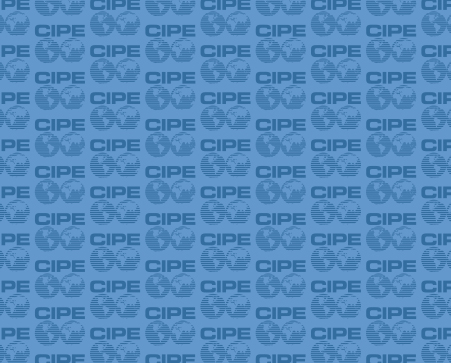
In the United States and Europe, many political parties, advocacy groups and media outlets value public opinion research as a tool for better understanding citizens’ needs and desires. That, however, is not always the case in the Middle East and North Africa where many governments and party officials believe they already recognize the issues important to their communities or worry that public opinion research may change the status quo.
Despite these obstacles, survey research organizations in the region have significantly improved their capabilities to conduct meaningful public opinion research in the last decade. Besides shedding light on the value of their services to policymakers and reformers, IRI has also included public opinion researcher training programs in its Middle East and North Africa initiatives.
While a plethora of international research firms conduct quantitative research in Iraq, they are often overpriced, overly concentrated in Baghdad, and unwilling to make meaningful investments that would improve local survey research capabilities. Recognizing the need for quantitative data from all of Iraq’s 18 provinces, IRI began working to improve Iraq’s indigenous polling capabilities.
Adapting a successful training model used in Pakistan, IRI spent two years training Iraqi researchers to conduct scientific opinion surveys. In December 2009, these researchers conducted their own national poll. Political actors and reformers were then able to use poll data to support other programs in the lead-up to Iraq’s parliamentary elections in March 2010.
In Jordan, IRI used public opinion research with focus groups and polling to assist elected officials in tailoring proposals to citizens’ needs. Khaled Al-Shumari, the mayor of Ma’an, used data from IRI’s March 2008 poll in Ma’ab to inform his FY2009 municipal budget. Responding to poll data that showed citizens prioritized infrastructure-related issues, Mayor Al-Shumari increased the budget for building new roads and streetlights. The mayor also raised funds to build three new parks because the poll showed people wanted new city parks and recreational facilities.
Mayor Al-Shumari received better approval ratings after tailoring his initiatives to poll findings: the number of respondents who said “things in the municipality are going in the right direction” increased 14 percentage points (from 58 percent in March 2008 to 72 percent in November 2009); satisfaction with road building and maintenance increased 30 percentage points; approval of public parks increased 34 percentage points and satisfaction with street lighting increased 25 percentage points.
Similar to IRI’s program in Jordan, IRI’s Morocco program has embarked on a robust local governance program to promote dialogue between constituents and elected officials. As part of this program, IRI coordinated a series of focus groups in Agadir, Rabat and Tangiers to examine the strengths and weaknesses of local elected governance. The focus groups also turned out recommendations for local councils moving forward.
This month the groups presented their results and Moroccan media outlets paid attention. Elected officials and civil society representatives must now act on these findings, which will improve citizen satisfaction with local governance. Findings from the focus groups will also become a basis for future survey research, providing a point of comparison for gauging the progress of elected officials.
Based on improved survey research capabilities in Iraq, Jordan and Morocco, the future of public opinion research in the Middle East and North Africa seems promising. Public opinion research clearly provides a voice for citizens that may have few other avenues to express their views. Increasingly, elected representatives, too, are beginning to see the importance and potential of public opinion research for their own endeavors.
This post is part of a series of guest posts by the International Republican Institute (IRI).
Published Date: July 15, 2010
